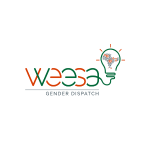Categories
Gender Equality and Social Inclusion in Public Water, Sanita...
Using case studies from South Asian and Pacific countries, especially in regards to poor gender-friendliness of public toilets, this report contains guidance on using principles of gender and social i...
Sex, lies, and measurement: Consistency tests for indirect r...
Measuring Workplace Harassment in Bangladesh: How Survey Met...
Empowering Women in Zanzibar's Energy Sector: A Journey of T...
This blog details the success of the Zanzibar Energy Sector Transformation and Access (ZESTA) Project's Internship Program in creating a pipeline of female STEM graduates for technical roles in the en...
Gender Equality Enables a Just Energy Transition (2024).
Women, as primary household energy managers, are uniquely positioned to promote clean energy adoption, but they remain marginalized within the institutions driving this transition. This blog highlight...
Leveraging HR Metrics to Close the Gender Gap in South Asia’...
In South Asia, women make up just 1–25% of the energy utility workforce. This blog showcases how organizations can close this gap through human resources (HR) policies that improve recruitment, profes...
Gender Vulnerabilities in Low Carbon Energy Transitions: A C...
This literature review examines how gender vulnerabilities are addressed in low-carbon energy transition literature, arriving at four key themes: land-use change, gender-neutral energy policies, acces...
The Political Economy of Gender Mainstreaming in Energy Acce...
In 2017, the Economic Community of West African States (ECOWAS) adopted the world's first regional policy integrating gender equity into energy and climate initiatives. Each member state developed a N...
Pacific Women in Power: Women's Employment in the Pacific Po...
This report establishes a baseline for women's employment in energy utilities and ministries across Pacific Island Countries. Analyzing policies, workforce data, and industry practices at various care...
Energy Poverty Alleviation Through Financial Inclusion: Role...
Using data from Bangladesh's Household Income and Expenditure Surveys (2010–2016), this study investigates the link between financial inclusion and energy poverty. The findings show that households wi...
Gendered Energy Relations at the Crossroads of Asia: Electri...
This study analyzes the gendered impacts of electrification in Shughnan District, Badakhshan Province, Afghanistan. It reveals that grid-connected communities experience 27% higher female literacy rat...
Understanding the Gap Between Gender Equality and Social Inc...
Progress toward integrating gender equality and social inclusion (GESI) objectives in Nepal’s energy sector has been slow, despite constitutional commitments to gender equality and non-discrimination....

